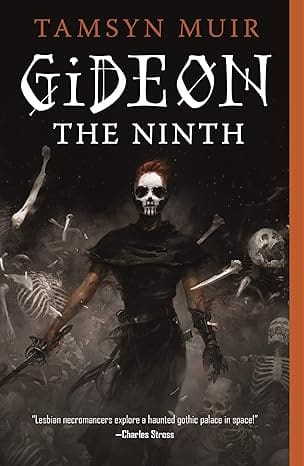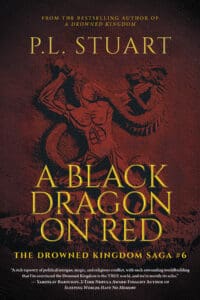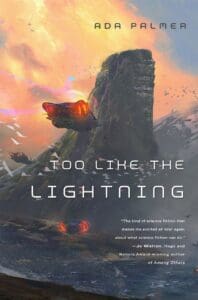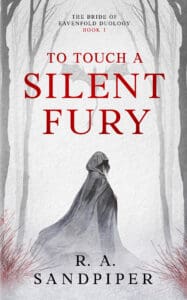
Synopsis:
The Emperor needs necromancers.
The Ninth Necromancer needs a swordswoman.
Gideon has a sword, some dirty magazines, and no more time for undead nonsense.
Tamsyn Muir’s Gideon the Ninth unveils a solar system of swordplay, cut-throat politics, and lesbian necromancers. Her characters leap off the page, as skillfully animated as arcane revenants. The result is a heart-pounding epic science fantasy.
Brought up by unfriendly, ossifying nuns, ancient retainers, and countless skeletons, Gideon is ready to abandon a life of servitude and an afterlife as a reanimated corpse. She packs up her sword, her shoes, and her dirty magazines, and prepares to launch her daring escape. But her childhood nemesis won’t set her free without a service.
Harrowhark Nonagesimus, Reverend Daughter of the Ninth House and bone witch extraordinaire, has been summoned into action. The Emperor has invited the heirs to each of his loyal Houses to a deadly trial of wits and skill. If Harrowhark succeeds she will be become an immortal, all-powerful servant of the Resurrection, but no necromancer can ascend without their cavalier. Without Gideon’s sword, Harrow will fail, and the Ninth House will die.
Of course, some things are better left dead.
Review:
I think what first caught my attention about this book was a tagline on the cover about “necromancers in space.” Necromancers are fun, and space-faring ones even more so.
But there isn’t much about space travel in this book. There are multiple worlds, each run by a different House of necromancers. The type of magic each House practices is unique to that House, and every necromancer is paired with a cavalier (a warrior who usually acts as a guardian figure.) But the space travel part isn’t done on-page, so if that’s what you’re excited for, I’m sorry to disappoint.
But the story is worth reading.
Most of this book is set on a world that was once occupied by the First House (the Emperor’s House), but it’s now in ruins. The portions set elsewhere are set on the dark world of the Ninth House, where the main character, Gideon, begins her journey. And by dark, I mean, it’s practically lightless, and it’s cold. It was never officially stated, but it made me think the Ninth’s world is quite a distance away from the nearest star.
Gideon was raised by the Ninth House, but she hates every aspect of it. She wants to leave, but her attempts are constantly thwarted. Eventually, she’s convinced to take up the role of cavalier for the necromancer Harrowhark with a promise of freedom from the Ninth when her work is finished. Gideon reluctantly accepts. She’s a skilled fighter, but Harrowhark is her lifelong nemesis. There is a lot of resentment between the two and very little trust, and that becomes a major problem later. They’re expected to work as a team, after all. (Side note: I really didn’t like Harrowhark.)
Harrowhark is summoned to the world of the First House to compete in becoming a Lyctor, a renowned position one step down from the Emperor himself. Each of the other seven Houses are also competing, but things become dangerous fast. It’s at this point where the book becomes more a murder-mystery with necromantic magic than it is a straight up fantasy, but I really liked that. It was kind of like Clue, but with magic, and more players involved.
I also found the various types of necromancy each House employed to be pretty interesting and at times, unique. Harrowhark’s magic focuses on bones—skeletons and the like—but she was the only one using that variety. One necromancer siphons souls, one can summon and draw energy from spirits, and one manipulates flesh/blood (there were other types too.) The creative use of each type of magic was a lot of fun.
The only minor complaint I have is that some of the action/combat scenes were difficult to follow in spots. Otherwise, this was a great read, and even though it’s listed as book 1 in the series, it works very well as a standalone.
And I’d be remiss if I didn’t add my thoughts about the ending before I finish this review. I understand why events unfolded as they did—it was the only way to make the story work—but I’ll admit it was still a little bit disappointing. Not in a way that made me think any less of the book, but it was disappointing for a certain character. If you’ve read it, you know what I’m referring to. If not… I’d still recommend you check it out if any of the above piques your interest.












Leave a Reply